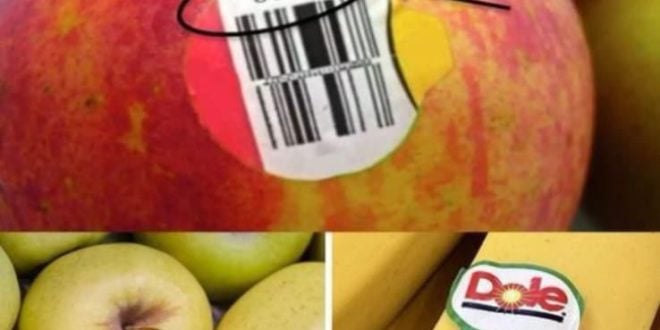When buying groceries, we often focus on the brand and expiration date. However, when selecting fruits and vegetables, we tend to choose the ripe ones that look good. Fruits and vegetables also have labels with numbers, but many people don’t pay attention to them because they don’t understand what they mean.
Numbers on fruit stickers like 9
Fruit numbers have a greater purpose than just showing the price. They actually give important details about the product. If you see fruit stickers with a 9 at the beginning of the five-digit number, it means the fruit was grown organically.
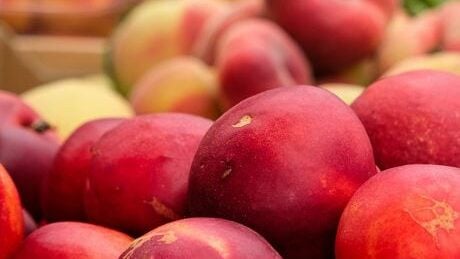
Number 8
If the fruit’s label starts with the number 8, it means the product has been genetically modified. GMO foods are a topic of debate as some people believe they can cause allergies. This technology is commonly used in agriculture to make crops more resistant to pests and diseases, increase tolerance to herbicides, or improve their nutritional value.
Currently, scientists are still studying the potential long-term impacts on humans. Some of the most well-known genetically modified fruits include papayas, apples, plums, strawberries, and grapes, among others.
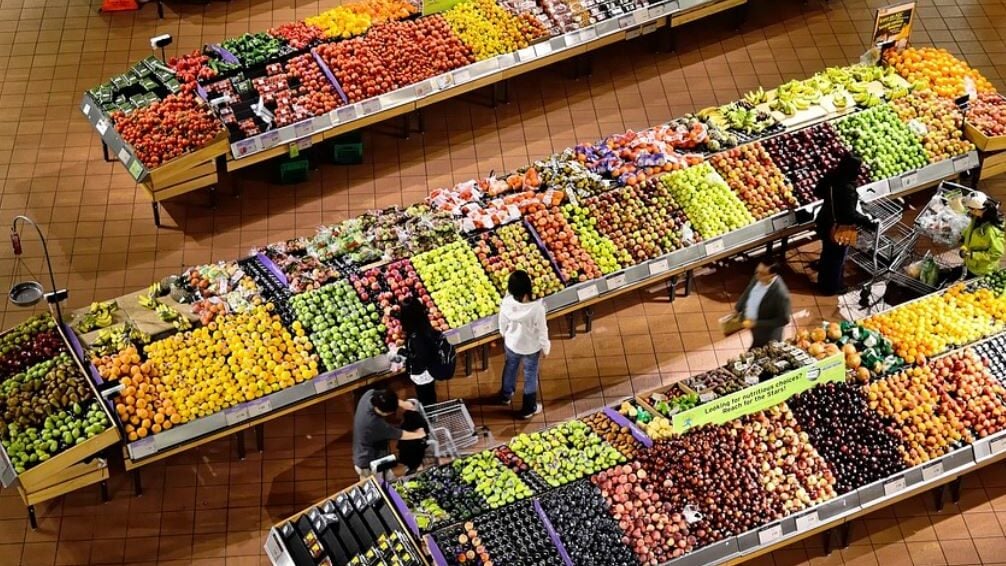
4-digit code
If the 4-digit code begins with 3 or 4, it means that the food is not organic. It is most likely grown using conventional methods. Conventionally grown food is fertilized using synthetic fertilizers and pesticides, unlike organic produce which uses organic matter and natural methods to control weeds.
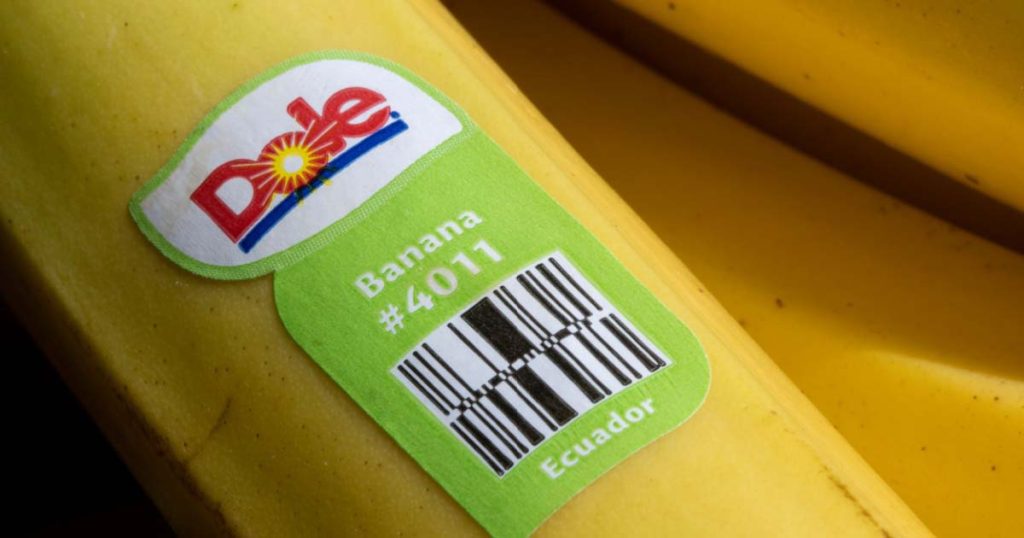
The discussion on the environmental effects and potential health issues related to traditional food production methods continues.
Dr. Tamika D. Sims, the senior director of food technology communications in Atlanta, Georgia, affirms that both organic and synthetic fertilizers are under “federal regulation.”
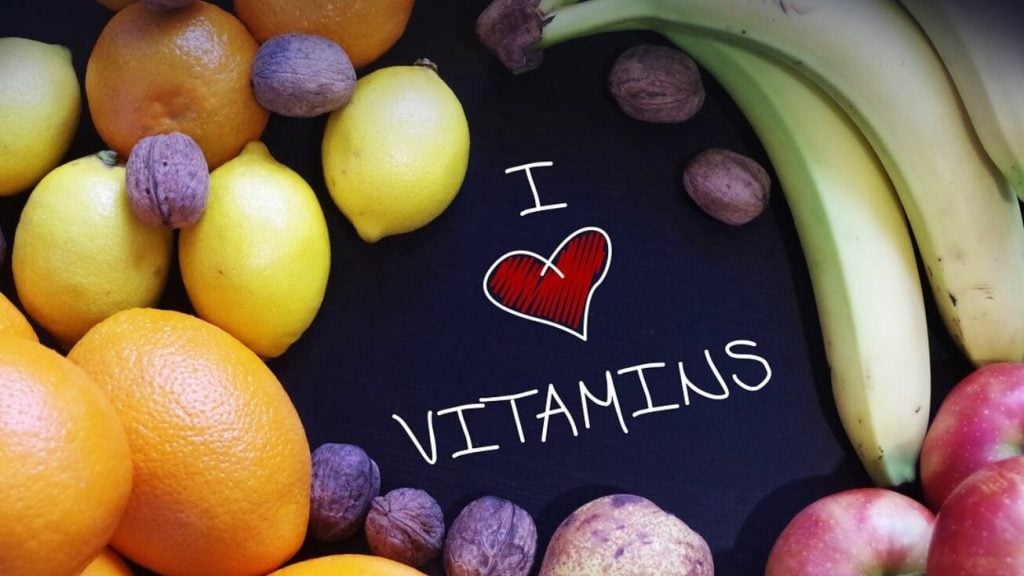
He believes that individuals should not be concerned about the numbers on fruits and vegetables they eat, but instead concentrate on achieving a balanced diet with a range of foods necessary for good health.
When choosing fruits and vegetables, the number of digits is important. A 4 or 5-digit number shows how and where the food was grown, as well as the size and type of food bought. However, if the product has a sticker with more than five digits, it means it’s not part of the “internationally standardized system.”
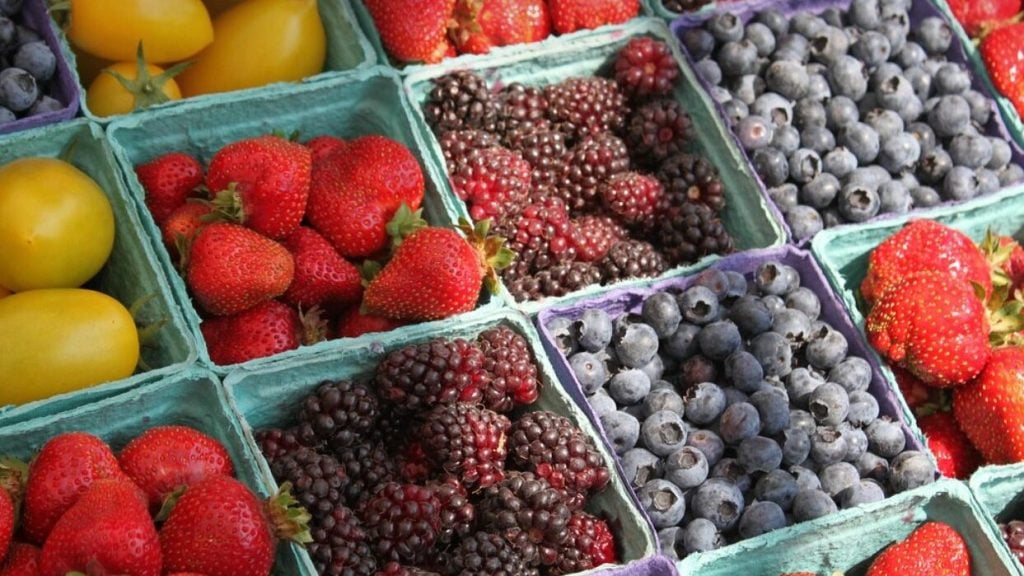
Many people find grocery shopping boring and try to finish it quickly.
It is important to understand that the food we eat is essential for our survival and overall well-being. Therefore, it is necessary for us to be more mindful when selecting the food we buy. The International Federation for Produce Standards is committed to enhancing the efficiency of the supply chain. This includes ensuring the availability of top-notch ingredients and establishing unified international standards.

During the 90s, a new system was introduced which involved placing stickers on fruits and vegetables. The purpose of categorizing these items with numerical codes was to ensure that they met high quality standards. The IFPS has created over 1,400 codes for this purpose. However, it is important to note that not all fruits and vegetables in stores have undergone inspection or approval by the IFPS, as the system is optional. Therefore, they may not meet global standards.
People who are conscious about the food they eat may find it helpful to understand the significance of the numbers on fruits and vegetables. This understanding can also make the self-checkout process faster by entering the PLU code instead of searching for the item by name. The PLU code system is a great way to keep track of the tasty and healthy foods that are available globally.
 Viral Hatch US/UK No.1 News Portal
Viral Hatch US/UK No.1 News Portal
